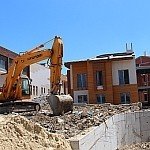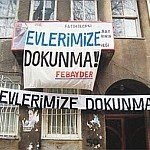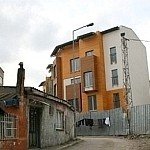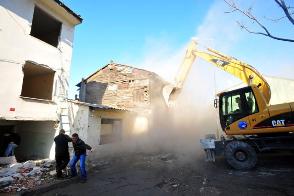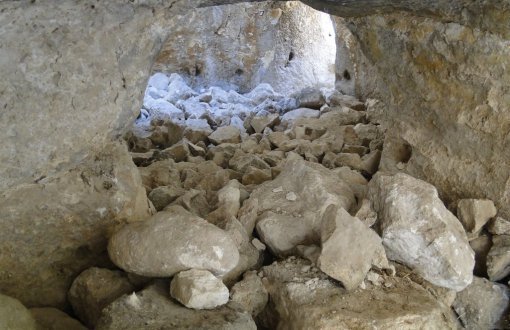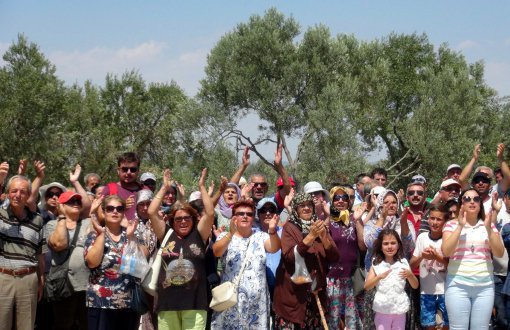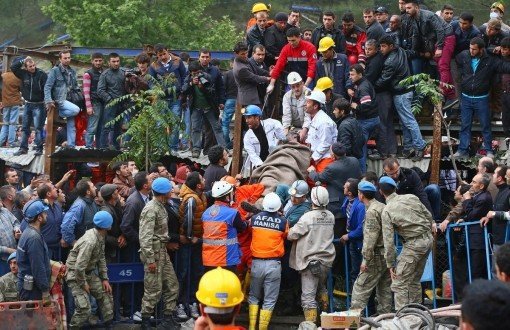
The Fatih Municipal Council approved a new preliminary project to "transform" the historical Roma district of Sulukule in Istanbul despite a court ruling to annul the previous plan two and a half months ago.
Architect Aslı Kıyak and lawyer Hilal Küey said the new preliminary project did not feature any improvements on the earlier plan. Gülay Yedekçi, a member of the Fatih Municipal Council from the opposition People's Republican Party (CHP,) also added they had not even been able to view the plan.
The Fatih Municipality had taken their case to the Council of State after a court ruled to annul the previous project two and a half months ago on the grounds that it was not in public interest.
Fatih Mayor Mustafa Demir had then responded that he was certain the Council of State would overturn that decision and that this verdict would also serve as a precedent to ensure the implementation of the new disaster law. Construction work in Sulukule continued in the meantime, while a lottery had also been drawn to determine the new occupants of the district.
The Fatih Municipality then prepared another preliminary project while the trial was underway, and the Municipal Council subsequently approved the new plan with 24 votes in favor and 10 against. The plan is now pending the approval of the Istanbul Metropolitan Municipality.
The Municipal Council said the government's "urban transformation" scheme was nearing completion and that the new plan, approved in the Second Conservation Council, was proper in every respect.
Deputy Yedekçi: "We could not view the project"
CHP Deputy Gülay Yedekçi who also serves as a member of the municipal council said they had seen neither the previous nor the new project.
"As the CHP, we presented a motion at the municipality, which is the only means available to us to object [to the decision.] Then we asked how [they could] rectify a project that was annulled for contravening public interest within the time period in question. We did not receive a reply, and the decision passed through the council without [us] being able to learn about the changes in the new project," she said.
Lawyer Küey: "They are circumventing the law"
Lawyer Küey said the approval of a new project while a trial is still underway over the fate of the current one violated the laws.
"They are trying to overcome the court's decision to annul [the first plan by introducing] a new one. Even though we have not been able to see the preliminary project, [they seem to have] prepared more or less the same plan as before and presented it as a new project, as far as we can understand from the council's decision. In sum, they are circumventing the laws," she said.
Küey further highlighted an earlier decision made by the Ministry of Culture and Tourism: "If a decision of the Conservation Council is pending in court, then a second decision cannot be approved over the same matter before the judiciary delivers its verdict."
Architect Kıyak: "They revised the plan 22 times over"
Architect Kıyak also said it was impossible for the municipality to have enacted all the necessary changes over the plan to comply with the court's decision within a span of merely one and a half months.
"Throughout the four year long trial process, they revised the project 22 times over by changing the location of a single piece of wood [each time.] The experts then said on every count that no changes had been made. The same thing is at work here... They breached the line marked by [the historical] walls and built three story buildings, while the streets' character transformed. To rectify these issues means to demolish [everything] there and re-build them. What sort of technique are they going to use to avoid demolishing all this at one stroke? This is asides from the fact that the physical proportions and the social dimensions of the issue with respect to the people uprooted from there can never be rectified anyway," Architect Kıyak said.
Court: "No public interest"
The court had ruled that the previous scheme violated Law No: 5366 and was not in compliance with public interest.
The verdict had stressed the historical significance of the area, adding that the project had failed to provide a zoning plan that aimed to conserve it. The verdict had also noted that the project violated the responsibilities Turkey had taken on when Istanbul had entered UNESCO's World Heritage List.
"[The defendants] formed 24 blocks in an area consisting of 12 blocks. [They] used Bostan, an area reserved for the public's use, for construction. Parks and green areas were non-existent. A typology came about consisting of three to four story buildings that are much taller than historical structures [standing in the area,]" according to the court's verdict. (NV)
Photo: Nejla Osseiran






